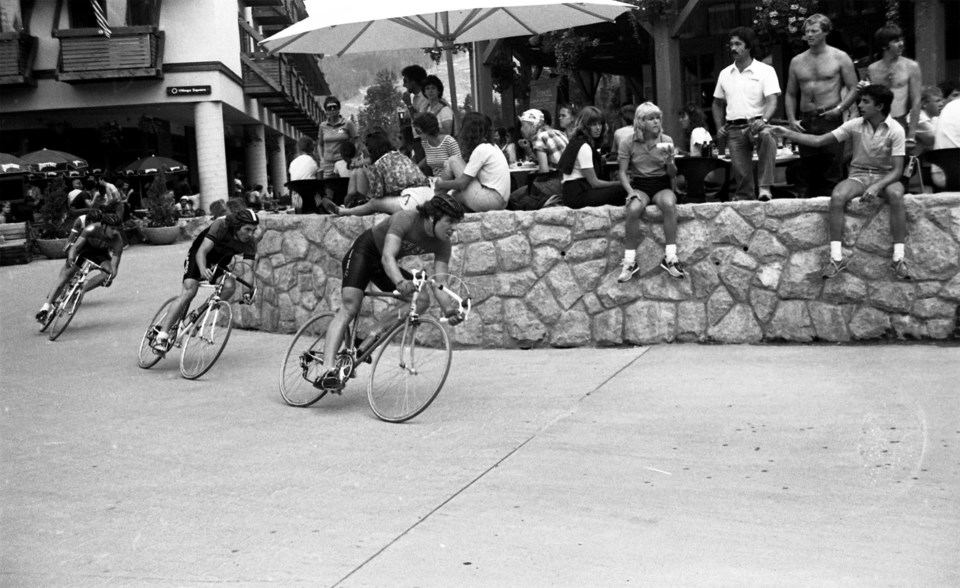On June 20, 1982, Whistler hosted what may have been its first mountain bike race, the (unofficial) Canadian Off-Road Cycle Championship organized by John Kirk. About three weeks later, the Molson Whistler Bike Race also took place in Whistler. Despite some very marked differences, the two events did have at least one thing in common: Jacob Heilbron.
The year before these two races took place in Whistler, Rocky Mountain Bicycles Ltd. had been incorporated in Vancouver by Grayson Bain, Sam Mak, and Jacob Heilbron. The three had already begun modifying their Nishiki bikes to ride trails in the mountains, adding the wider tires and straight handlebars described as “puffy” and “upright” by the Whistler Question. In 1982, the same year that Whistler hosted its first mountain bike race, Rocky Mountain Bicycles produced the Sherpa, the first mountain bike created in Canada. As mountain biking was still so new, it is no surprise that there were crossovers between the two sports.
According to the Whistler Question and some of the competitors, the Canadian Off-Road Cycle Championship may have actually been one of the first mountain bike races in Canada, taking place two years before the Canadian Off-Road Bicycle Association was formed in 1984. Seventeen competitors signed up for the race featuring “puffy over-sized balloon tires and upright handlebars.” It began with a Le Mans start down the lower part of the Village Chair to their bikes in Mountain Square. From there, the course headed out to Lost Lake, along Green Lake, and back from the Wedge Creek turnoff to end up on the Lost Lake trail again.
The racer who took first place, Tony Starck, reportedly bought his first off-road bike just three weeks before the race. Russ Maynard came second and third went to Jacob Heilbron, who remembered switching to a road bike on the one highway section of the course and thus picking up about three places before switching back to his mountain bike for the trails. Prizes were also awarded to the first one-speed to cross the finish line, the competitor who finished closest to an unspecified “mystery time,” and the person who did the best wheelie in the wheelie contest held the day before.
In contrast to the unofficial championship with few rules, the Molson Whistler Bike Race held in July 1982 had 120 competitors with road bikes, a well-marked course with marshalls, and even corporate sponsorship. While mountain biking was still a very new sport, road cycling was well established and 1982 was reportedly the 12th year the Molson Whistler Bike Race was held. The event, which featured a two-stage course from Vancouver to Whistler and then on to Pemberton, as well as a 50-lap criterium race around the Town Centre, was organized by the same Jacob Heilbron who placed third in the Off-Road Cycle Championship.
Despite some criticisms of the criterium course, Ross Chafe placed first overall in the Molson Whistler Bike Race, followed by Tom Broznowski, then the U.S. national road-racing champion. In third was Beau Pulfer, a member of the Canadian National Team. Genevieve Brunet took first in the women’s category, with Sheila Cavers and Kelly-Ann Way taking second and third places. Most racers and organizers agreed that the event went “exceptionally well.”
Forty years later, mountain biking has arguably replaced road cycling as the dominant form of recreation on two wheels. There continue to be many riders, however, who participate in both sports and both continue to be well represented by events in the summer months, with Crankworx returning this August and the GranFondo scheduled for September.




